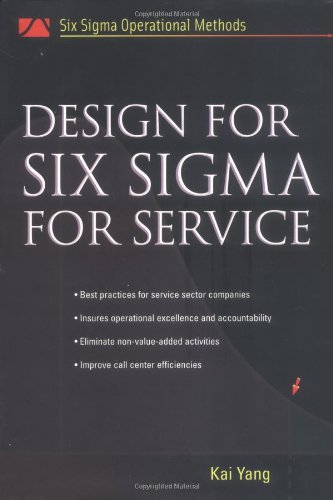

Most ebook files are in PDF format, so you can easily read them using various software such as Foxit Reader or directly on the Google Chrome browser.
Some ebook files are released by publishers in other formats such as .awz, .mobi, .epub, .fb2, etc. You may need to install specific software to read these formats on mobile/PC, such as Calibre.
Please read the tutorial at this link: https://ebookbell.com/faq
We offer FREE conversion to the popular formats you request; however, this may take some time. Therefore, right after payment, please email us, and we will try to provide the service as quickly as possible.
For some exceptional file formats or broken links (if any), please refrain from opening any disputes. Instead, email us first, and we will try to assist within a maximum of 6 hours.
EbookBell Team

5.0
108 reviews
ISBN 13: 9780071445559
Author: Kai Yang
The primary objective of this new book is to provide a comprehensive reference for those who work in a service industry setting. Unlike Design for Six Sigma a Roadmap for Product Development, this new book will address the 5 leading issues in the service industry, which are customer satisfaction, cost reduction, value improvement, change management and process performance measurements.
Chapter 1. Six Sigma in Service Organizations
1.1 Introduction to the Service Industry
1.2 Success Factors for Service Organizations
1.3 Overview of Six Sigma
1.4 Six Sigma for Service
Chapter 2. Design for Six Sigma Road Map for Service
2.1 Introduction
2.2 Why Use Design for Six Sigma in the Service Industry?
2.3 Design for Six Sigma Phases for Service Product
2.4 Design for Six Sigma Phases for Service Process
Chapter 3. Value Creation for Service Product
3.1 Introduction
3.2 Value and Its Elements
3.3 Maximize Customer Value by Service Product Design
Chapter 4. Customer Survey Design, Administration, and Analysis
4.1 Introduction
4.2 Survey Instrument Design
4.3 Administering the Survey
4.4 Survey Sampling Method and Sample Size
Chapter 5. Customer Value Management
5.1 Introduction
5.2 Market-Perceived Quality Profile
5.3 Market-Perceived Price Profile
5.4 Customer Value Map
5.5 Competitive Customer Value Analysis
5.6 Customer Value Deployment
Chapter 6. Quality Function Deployment
6.1 Introduction
6.2 History of QFD
6.3 QFD Benefits, Assumptions, and Realities
6.4 QFD Methodology Overview
6.5 Kano Model of Quality
6.6 QFD Analysis
6.7 Example
6.8 QFD Case Study: Yaesu Book Center
6.9 Summary
Chapter 7. Value Engineering
7.1 Introduction
7.2 Information Phase
7.3 Creative Phase
7.4 Evaluation Phase
7.5 Planning Phase
7.6 Reporting Phase
7.7 Implementation Phase
7.8 Value-Engineering Case Studies
Chapter 8. Brand Development and Brand Strategy
8.1 Introduction
8.2 The Anatomy of Brands
8.3 Brand Development
Chapter 9. Theory of Inventive Problem Solving (TRIZ)
9.1 Introduction
9.2 TRIZ Fundamentals
9.3 TRIZ Problem-Solving Process
9.4 Technical Contradiction Elimination and Inventive Principles
9.5 TRIZ Applications in the Service Industry
9.6 Business Inventive Principles
Appendix A: Contradiction Table of Inventive Principles
Appendix B: Business Contradiction Matrix
Chapter 10. Design and Improvement of Service Processes—Process Management
10.1 Introduction
10.2 Process Basics
10.3 Process Types and Process Performance Metrics
10.4 Process Mapping
10.5 Lean Operation Principles
10.6 Process Management Procedures
10.7 A Process Management Case Study
Chapter 11. Statistical Basics and Six Sigma Metrics
11.1 Introduction
11.2 Descriptive Statistics
11.3 Random Variables and Probability Distributions
11.4 Quality Measures and Six Sigma Metrics
Chapter 12. Theory of Constraints
12.1 Introduction
12.2 Basic Concepts in the Theory of Constraints
12.3 Theory of Constraints Implementation Process
12.4 Change Management
References
design for six sigma process
y = f(x) six sigma
design for 6-sigma
p diagram six sigma
q design services inc
quality design services inc